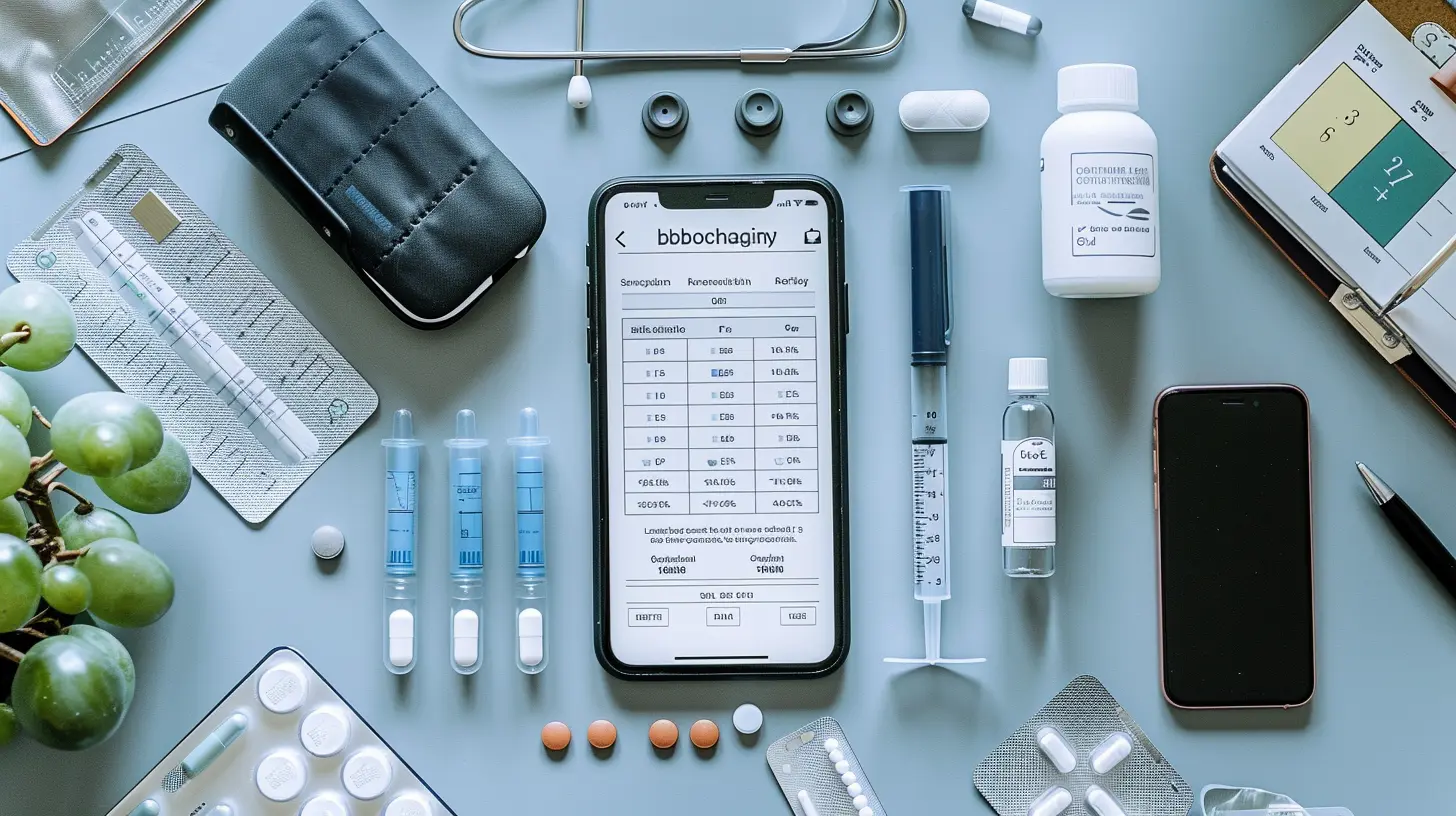Budgeting for Health: Tips for Saving on Medical Expenses
24 October 2025
Let's be honest—healthcare costs can feel like a never-ending money pit. One doctor’s visit, a couple of prescriptions, and suddenly your bank account looks like it’s been hit by a financial tornado.
But here’s the good news: You don’t have to choose between staying healthy and keeping your wallet intact. With a little bit of strategy (and a dash of common sense), you can budget for medical expenses and still have enough cash left for the fun things in life. Let’s dive into some simple yet effective ways to save on healthcare costs without sacrificing your well-being. 
Why Budgeting for Healthcare Matters
Most people budget for groceries, rent, and Netflix, but when was the last time you set money aside for medical expenses? Exactly.The truth is, healthcare costs can sneak up on you like a ninja in the night. Whether it’s a surprise medical bill, an unexpected prescription refill, or a routine check-up that turns into an expensive ordeal, having a financial game plan can help you stay ahead of the curve.
Budgeting for medical expenses means:
✅ Less stress when an emergency pops up
✅ Avoiding medical debt (because nobody likes those collections calls)
✅ Staying proactive about your health without breaking the bank
So, let’s get to the good stuff—how can you actually save money on healthcare? 
1. Get the Right Health Insurance Plan
Health insurance is a biggie. Pick the wrong plan, and you could be overspending by thousands each year. Pick the right one, and you’ll have enough left over for that tropical vacation you’ve been dreaming of (well, maybe).Tips for Choosing the Best Plan:
- Know Your Needs: If you’re healthy and rarely visit the doctor, a high-deductible plan with lower premiums might be a smart choice. If you have a chronic condition, a plan with better coverage for prescriptions and specialist visits could save you money in the long run.- Compare Plans: Don't just pick the first plan your employer offers—shop around. Websites like Healthcare.gov can help you compare plans and see what fits your budget.
- Maximize Employer Benefits: If your job offers a Health Savings Account (HSA) or Flexible Spending Account (FSA), take advantage of it! These accounts let you use pre-tax dollars for medical expenses, which is basically free money.

2. Use Preventive Care to Dodge Bigger Bills
You know what’s cheaper than treating a serious illness? Preventing it in the first place. Many insurance plans cover preventive care, like annual check-ups, vaccinations, and screenings, at no cost to you.Preventive Care Tips:
- Get your annual check-ups—spotting issues early can save you from costly treatments later.- Stay up to date on vaccinations (yes, even as an adult!).
- Keep an eye on routine screenings (blood pressure, cholesterol, diabetes, etc.).
Think of it like car maintenance. You wouldn’t wait until your engine starts smoking before getting an oil change, right? Your body deserves the same kind of care. 
3. Be Smart About Prescription Medications
Prescription drugs can drain your wallet faster than an online shopping spree. But you don’t have to pay full price!Ways to Save on Medications:
- Go Generic: Generic drugs have the same active ingredients as brand-name meds but cost way less.- Use a Prescription Discount Card: Apps like GoodRx can help you find discounts at local pharmacies.
- Order in Bulk: If you take a daily medication, see if you can get a 90-day supply instead of a 30-day one. Many pharmacies offer discounts for bulk refills.
- Ask for Samples: Doctors sometimes have free samples of medications, so don’t be shy about asking.
A little bit of effort here can add up to hundreds in savings over the course of a year.
4. Compare Prices for Medical Services
Imagine walking into a car dealership, grabbing the first car you see, and paying whatever price they tell you. Sounds crazy, right? But that’s exactly what people do with healthcare.How to Get the Best Price:
- Shop Around: Prices for the same procedure can vary wildly between providers. Websites like Healthcare Bluebook can help you compare costs.- Negotiate Your Bills: Yup, you can negotiate medical bills! Many hospitals and doctors’ offices offer discounts if you ask, especially if you’re paying cash.
- Check for Errors: Medical billing mistakes are more common than you think. Always review your bills for duplicate charges or incorrect fees.
If you wouldn’t pay full price for a TV without shopping around, why should healthcare be any different?
5. Consider Telehealth for Routine Visits
Going to the doctor can be expensive, but thanks to telehealth, you might not have to leave your couch.Why Telehealth Is a Money-Saver:
- Lower Costs: Virtual visits often cost less than in-person appointments.- Saves Time and Travel Expenses: No more paying for gas or parking just to see your doctor for 10 minutes.
- Convenience: You can chat with a doctor from home, making it easier to get care without disrupting your day.
For minor issues (colds, allergies, mental health therapy, etc.), telehealth can be a game-changer.
6. Take Advantage of Free or Low-Cost Health Resources
Who doesn’t love free stuff? Many community programs and non-profits offer free or low-cost health services.Where to Look:
- Community Health Clinics: Many offer discounted or free services based on income.- Retail Pharmacy Clinics: Chains like CVS and Walgreens often provide affordable walk-in care for minor issues.
- Employer Wellness Programs: Some workplaces offer free health screenings or wellness incentives.
It’s worth checking these options before forking over money for expensive doctor visits.
7. Create a Medical Emergency Fund
Even with great planning, unexpected medical costs can still pop up. That’s where an emergency fund comes in.How to Build One:
- Set aside a little each month—$25, $50, whatever you can afford.- Keep it separate from your regular savings so you’re not tempted to spend it.
- Aim for at least $500-$1,000 to start, then build from there.
Having a medical fund is like having a financial safety net—it keeps you from stressing when surprise expenses hit.
8. Stay Healthy to Avoid Medical Costs Altogether
Okay, this one sounds obvious, but hear me out. The healthier you are, the less you’ll spend on doctor visits, medications, and hospital stays.Simple Ways to Stay Healthy:
- Eat a balanced diet—your body will thank you.- Move your body daily, even if it’s just a walk.
- Get enough sleep (because burnout leads to doctor visits).
- Reduce stress—meditation, hobbies, and even laughing more can help.
Think of health like an investment—the more you put in now, the bigger the returns later.
Final Thoughts
Budgeting for healthcare doesn’t have to be a headache. With the right plan, smart choices, and a little bit of effort, you can save money while keeping yourself in top shape.So, next time you think about skipping that budget category for medical expenses, remember—your health is worth it. And your wallet will thank you later!
all images in this post were generated using AI tools
Category:
Budgeting TipsAuthor:

Angelica Montgomery
Discussion
rate this article
1 comments
Erin McGuffey
Great tips! It's amazing how small adjustments can lead to significant savings on medical expenses. Prioritizing health while sticking to a budget feels achievable with these strategies. Cheers to smarter spending and better wellness!
November 3, 2025 at 4:23 AM

Angelica Montgomery
Thank you! I'm glad you found the tips helpful. Here's to achieving better health and savings together!


